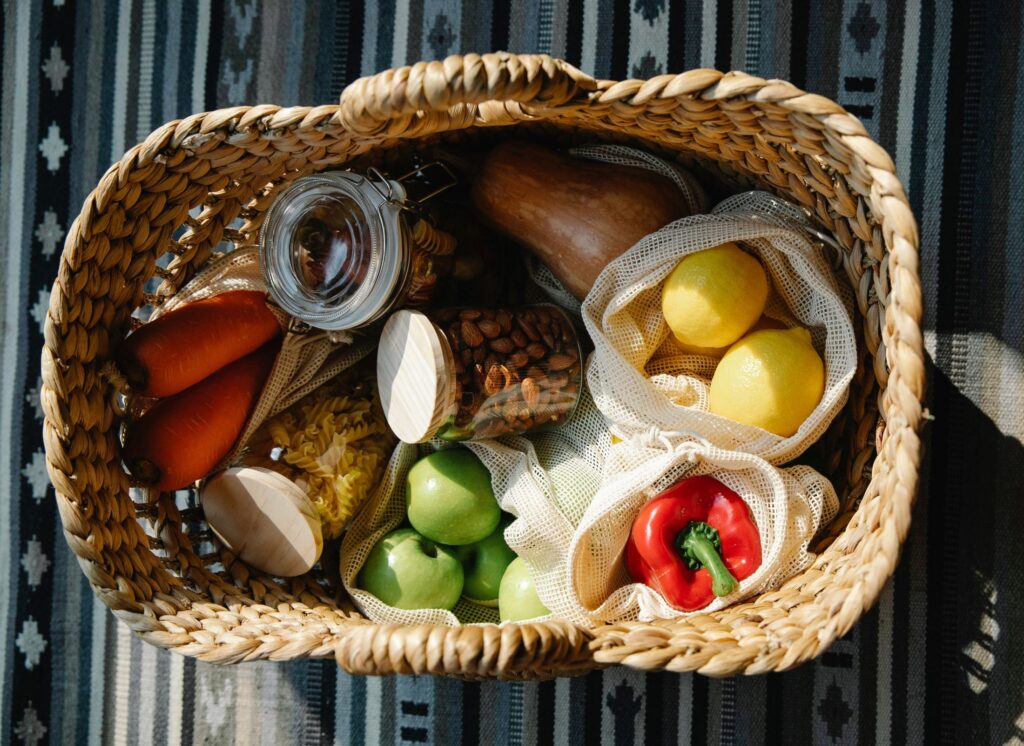The term zero-waste is at the forefront of environmentalism, but I think it lacks some practicality. Don’t get me wrong, it’s a great term to use for setting goals to reduce consumption and adjust wasteful habits. It’s also great at describing eco-friendly alternatives. But as a tangible long-term lifestyle, zero-waste is unsustainable. So, when I think about zero-waste lifestyles I use it as an ideal and not something literal. I don’t think everyone should try to be zero-waste. Instead, I advocate for low-impact living.
I like doing things zero-waste because, let’s be real, it’s a great environmentally friendly practice if you can do it. But I honestly don’t subscribe to labeling my lifestyle as zero-waste. Instead, I lean into the idea of low-impact living and it has made a world of difference in my life. It helps ease climate anxiety and keeps me hopeful about the future. This is because aligning myself to live with as little impact as possible (without pressuring myself to make everything zero-waste!) reduces burnout and helps bring awareness to positive choices even if they aren’t perfectly zero-waste.
So, what is low-impact living?
Low-impact living essentially is trying to leave a minimal environmental footprint without sweating everything. It’s realizing you can’t be perfect but you can live your life in the most positive way for you. Low-impact living entails consuming less, being mindful, and choosing waste-free options as much as possible. But it also involves realism and compassion for yourself if you still need to choose options that aren’t zero-waste.
Not everyone has the same means and access to more environmentally friendly options. Plus, there are just some things that we can’t make zero-waste until there’s broader change. That doesn’t mean you aren’t doing your part though and as long as you’re striving to be the most conscious version of yourself, you’re succeeding.
Why is a low-impact lifestyle better than a zero-waste lifestyle?
Doing the best we can and building up to a more sustainable society communally is the best way we can cultivate a long-term healthy relationship with ourselves, each other, and our planet. Your ability to do things zero-waste is not only dependent on your personal capacity and financial means but also on where you live and what’s available to you. It can also be incredibly difficult to choose zero-waste options purely due to the linear nature of our society.
Yes, we need to acknowledge our place in the grand scheme of things and ease overconsumption problems. But individuals aren’t largely responsible so to uplift each other and cultivate the large-scale changes that our planet needs we need to find positive and sustainable solutions and that can be accomplished through low-impact living.
We don’t need to bully ourselves into being perfect because we can’t be. We shouldn’t scrutinize the actions of individuals to extreme degrees and instead collectively try to do better. Until there is widespread change, we just need to focus on doing our best because at the end of the day, the planet matters, and our actions (no matter how big or small) matter.
Low-impact living can look like:
- Eating mostly at home or dining in (instead of take-out!).
- Using reusable grocery and produce bags or carrying things.
- Utilizing bulk sections.
- Buying loose produce.
- Shopping seasonally and locally when able.
- Thrifting instead of buying new.
- Eating more plant-based meals.
- Hang drying clothes.
The list goes on! There are so many things we can do to mitigate our impact on our environment. But, despite what zero-waste ideals tell us, we can’t be zero-waste 100% of the time. We don’t need to be though! There’s beauty in imperfection, we can be imperfect and still do some good. Learning more, trying to be self-reliant, and committing to being the best version of yourself is low-impact living! Develop a sense of responsibility but don’t get burdened by it. After all, it’s not about being perfect but about being aware and doing what you can.

